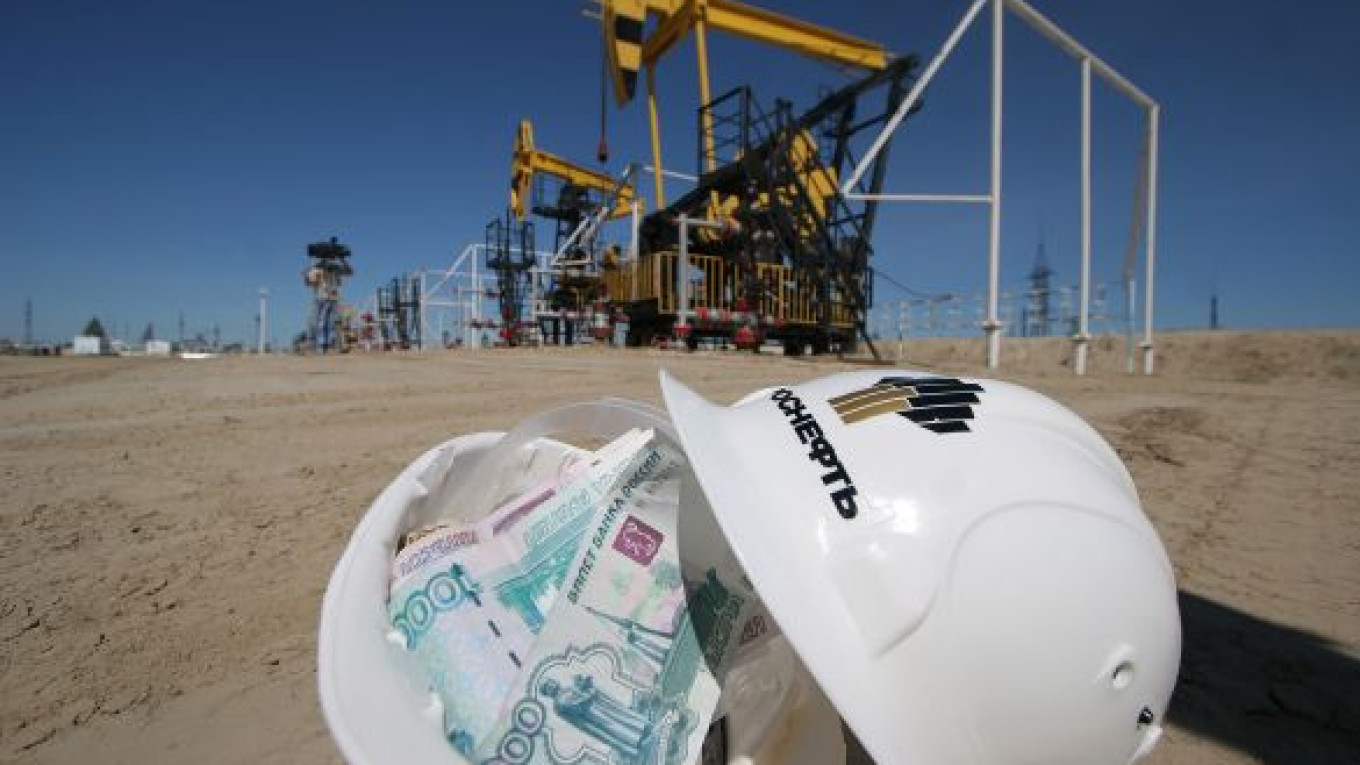In another sign of its ambitions to grow, Rosneft has moved to raise the profile of its mid-sized bank, hiring former top guns from Morgan Stanley.
The state-controlled oil company said it put together an international team that will create Rosneft Bank, just weeks after it agreed to take over a rival oil producer, a move that will see it grow into the world’s largest listed company by crude output.
A bigger focus on banking places Rosneft even further from typical oil majors, which usually don’t run financial institutions.
Led by Walid Chammah, most recently the global co-president of Morgan Stanley, the team will build the new bank using Rosneft’s existing lender, the All-Russian Bank of Regional Development.
The group of executives, which Rosneft’s statement Monday termed a “strategic advisory group,” also includes Rair Simonyan, the former chairman of Morgan Stanley in Russia; and Yelena Titova, the former president of the bank’s Russian office.
By upgrading the bank, Rosneft seeks to gain a greater degree of control over the funding of its growth, the oil company said.
“Rosneft Bank will assist in implementing large-scale international projects,” the statement said.
It didn’t identify the projects, but Rosneft has recently concluded deals with ExxonMobil to produce oil in Russia and internationally. It also agreed to join forces in Russia with Italy’s Eni and Norway’s Statoil. Thanks to the recently announced megadeal, Rosneft has good prospects for collaborating with BP globally.
The lender will also help Rosneft to streamline its trading in crude oil and petroleum products and provide financial services to other corporate clients in the oil, gas and energy sectors.
It is unusual for an oil company to have a bank, said Shamil Yenikeyeff, a researcher at the Oxford Institute for Energy Studies.
Another of Russia’s energy giants, Gazprom, has reduced its stake in former subsidiary Gazprom Bank.
Rosneft Bank could bid for Rosneft’s state-held assets if and when the government decides to follow through with its plan to further privatize the oil company, Yenikeyeff said.
“Why not?” he said. “It may well be the reason why it is being created.”
The bank could also try to snap up some other energy industry assets, he added.
With the size of Rosneft’s debt going through the roof, it will be a challenge for the company to stock the new bank with capital, Yenikeyeff said.
Rosneft has to shell out $56 billion in cash and equity in the takeover of privately held TNK-BP, which is the country’s third-largest oil producer.
Rosneft will appoint Titova president of the Russian Regional Development Bank and name her, Simonyan and Chammah to the new board of the bank.
Rosneft owns 85 percent of the bank, whose assets are valued at 77 billion rubles ($2.4 billion).
Rosneft president Igor Sechin said in the statement that the company needs a financial institution that will “attract the most qualified professionals, implement the best corporate governance practices, adapt the most advanced technologies and provide the most efficient and effective financial services possible.”
A Rosneft spokesman declined to make further comments Tuesday afternoon.
Simonyan and Titova stayed with Morgan Stanley until November, but the news that they were leaving the bank broke in August amid speculation they would end up working for Rosneft.
Simonyan sits on the boards of state-controlled Transneft, Sberbank and United Shipbuilding Corp.
Titova is a board member at state-controlled Federal Grid Co. and Interregional Grid Co.
Related articles:
A Message from The Moscow Times:
Dear readers,
We are facing unprecedented challenges. Russia's Prosecutor General's Office has designated The Moscow Times as an "undesirable" organization, criminalizing our work and putting our staff at risk of prosecution. This follows our earlier unjust labeling as a "foreign agent."
These actions are direct attempts to silence independent journalism in Russia. The authorities claim our work "discredits the decisions of the Russian leadership." We see things differently: we strive to provide accurate, unbiased reporting on Russia.
We, the journalists of The Moscow Times, refuse to be silenced. But to continue our work, we need your help.
Your support, no matter how small, makes a world of difference. If you can, please support us monthly starting from just $2. It's quick to set up, and every contribution makes a significant impact.
By supporting The Moscow Times, you're defending open, independent journalism in the face of repression. Thank you for standing with us.
Remind me later.


